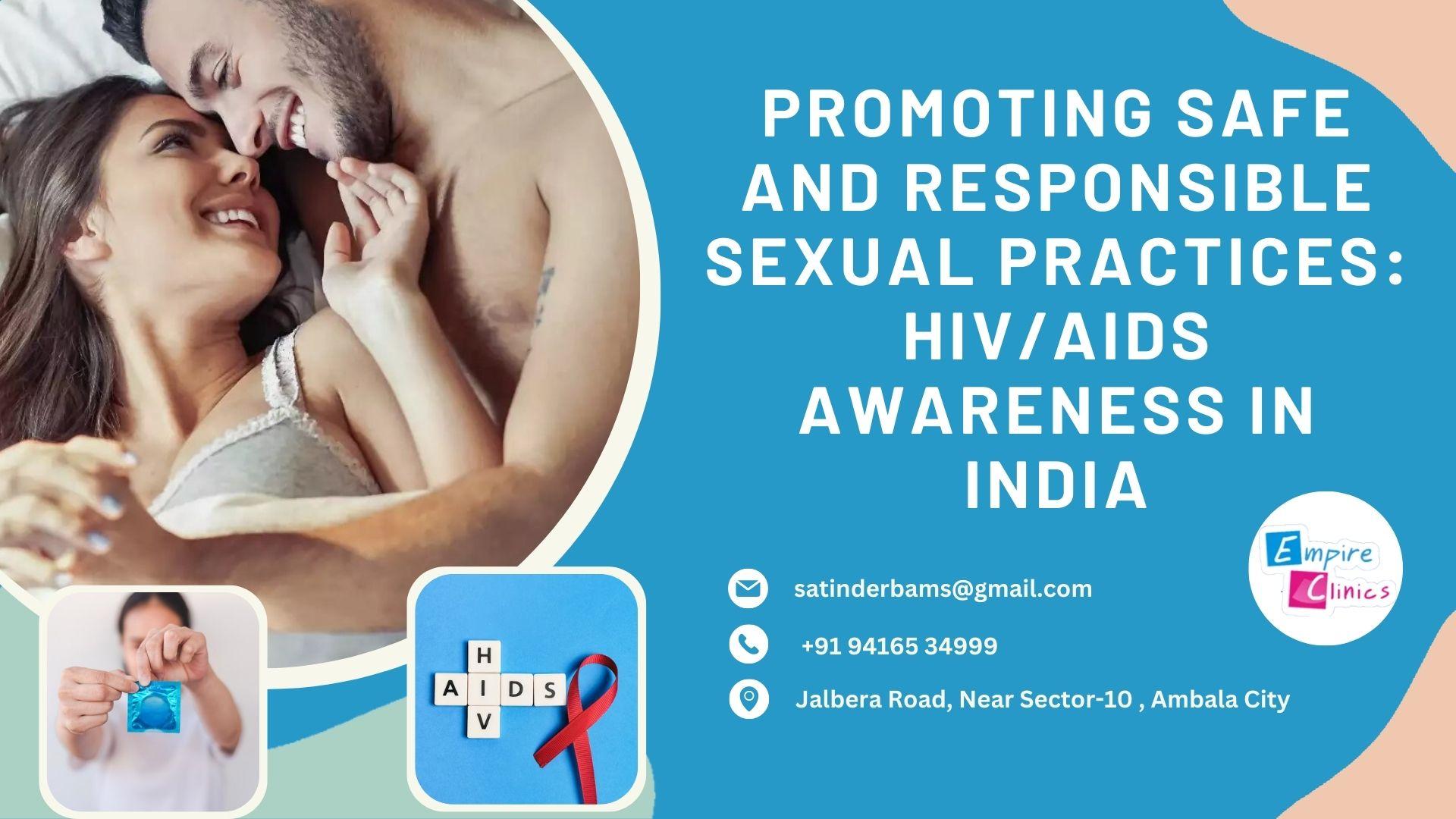HIV/AIDS remains a significant global health challenge, and India is no exception. With a large population and diverse cultural and social dynamics, it is crucial to promote safe and responsible sexual practices to prevent the spread of HIV/AIDS in the country. Creating awareness, providing education, and ensuring access to prevention, testing, and treatment services are essential steps in combating this epidemic. In this article, we will explore the importance of HIV/AIDS awareness and the strategies that can be implemented to promote safe and responsible sexual practices in India.
1. Education and Awareness: Education is a powerful tool in preventing the spread of HIV/AIDS. It is essential to provide comprehensive and accurate information about the modes of transmission, prevention methods, and the importance of early testing and treatment. Educational campaigns should target various populations, including adolescents, young adults, and high-risk groups, with culturally sensitive and linguistically appropriate materials to ensure maximum reach and impact.
2. Condom Promotion and Accessibility: Condoms are one of the most effective methods of preventing the transmission of HIV/AIDS and other sexually transmitted infections (STIs). Promoting the correct and consistent use of condoms through awareness campaigns and ensuring their accessibility at affordable prices are crucial steps in encouraging safe sexual practices. Condom distribution programs in schools, colleges, healthcare settings, and community centers can play a significant role in increasing condom usage.
3. Voluntary Counseling and Testing (VCT): Voluntary counseling and testing services are critical in identifying individuals who are HIV-positive and linking them to appropriate care and support. Promoting regular HIV testing and offering confidential and non-judgmental counseling services can help reduce stigma and discrimination associated with HIV/AIDS. Integrated testing services, which also screen for other STIs, can provide a comprehensive approach to sexual health.
4. Prevention of Parent-to-Child Transmission (PPTCT): Ensuring access to prevention of parent-to-child transmission services is vital in reducing the number of children born with HIV. Offering antenatal care, HIV testing, counseling, and interventions to prevent transmission from mother to child can significantly contribute to the elimination of pediatric HIV infections.
5. Targeted Interventions for High-Risk Groups: High-risk populations, including sex workers, men who have sex with men, transgender individuals, and people who inject drugs, are disproportionately affected by HIV/AIDS. Tailored interventions that address their specific needs, such as outreach programs, peer education, condom distribution, and access to harm reduction services, are essential to reduce HIV transmission within these communities.
6. Engaging Community and Civil Society Organizations: Collaborating with community-based organizations, civil society groups, and non-governmental organizations (NGOs) can enhance the effectiveness of HIV/AIDS awareness and prevention programs. These organizations have the knowledge and expertise to reach vulnerable populations, provide support services, and advocate for the rights of those affected by HIV/AIDS. Engaging them in planning, implementation, and evaluation processes can lead to more targeted and impactful interventions.
7. Addressing Stigma and Discrimination: Stigma and discrimination continue to be significant barriers in HIV/AIDS prevention and treatment efforts. It is crucial to address misconceptions and promote acceptance and support for individuals living with HIV/AIDS. Educating the general public, healthcare providers, and policymakers about the rights and needs of those affected by HIV/AIDS can help reduce stigma and discrimination and create a more inclusive society.
8. Integration of Sexual and Reproductive Health Services: Integrating HIV/AIDS prevention, testing, and treatment services with existing sexual and reproductive health programs can improve access and uptake of services. This integration ensures that individuals receive comprehensive care that addresses their sexual health needs, including family planning, STI screening, and other related services.
In conclusion, promoting safe and responsible sexual practices is crucial to prevent the spread







